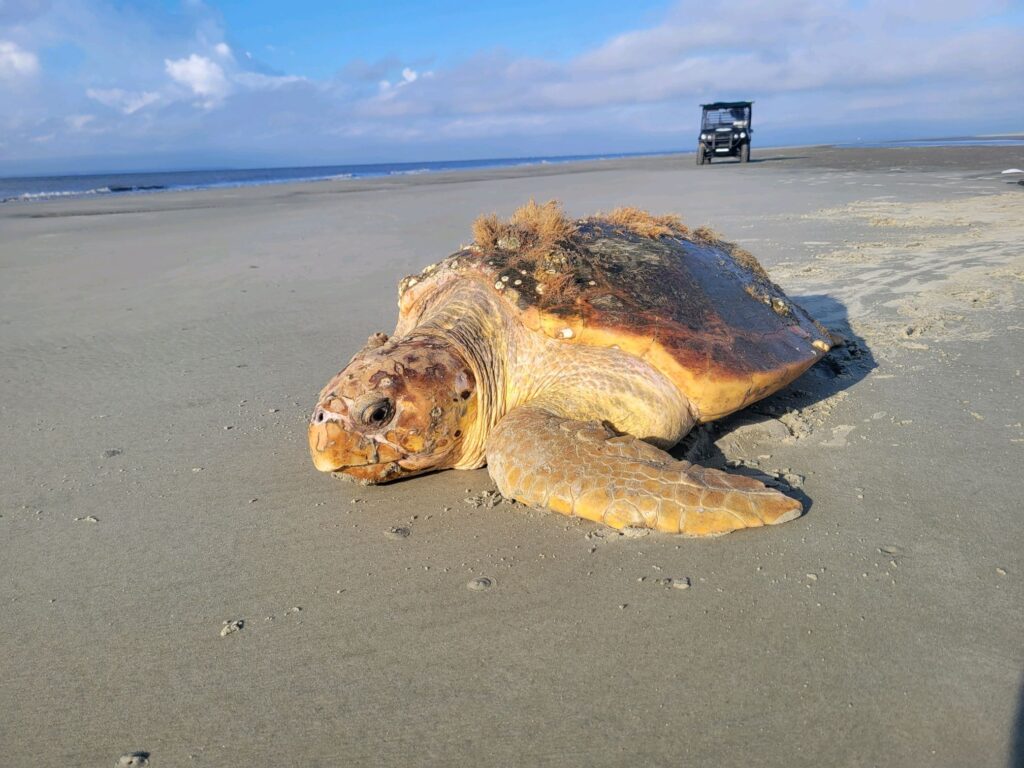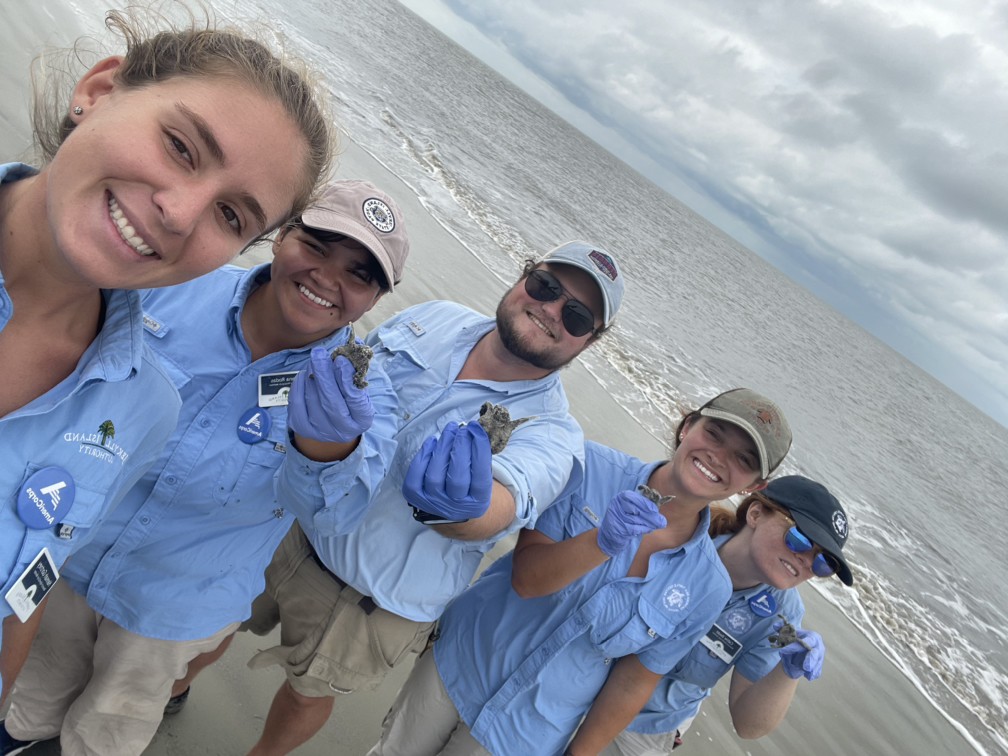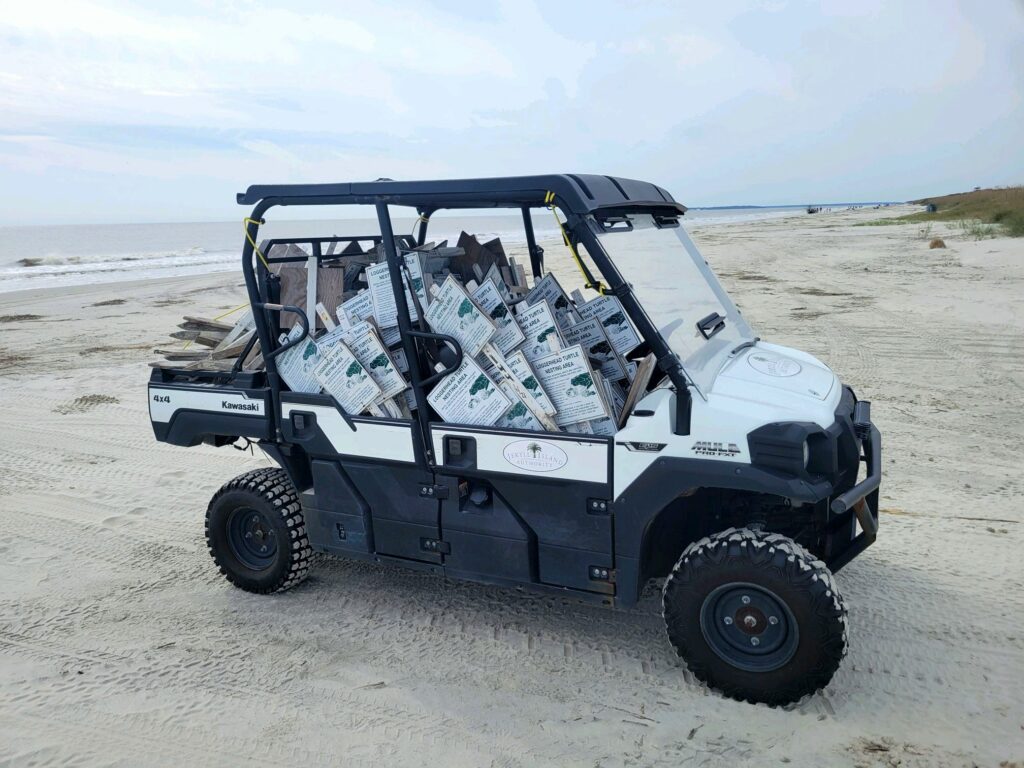By Davide Zailo, Research Program Manager, Georgia Sea Turtle Center
The start of nesting sea-turtle activity began early this year on Jekyll Island. On April 28th, the Georgia Sea Turtle Center’s (GSTC) sea turtle patrol team was notified of mysterious large tracks spotted above the high tide line on Jekyll’s south end. Normally, the team begin its surveys for nesting sea turtles in May. Staff loaded equipment into the beach-ready UTVs, a necessary purchase made possible through funding provided by the Jekyll Island Foundation, and headed to the scene. Indeed, there were tracks left from the flippers and shell of an adult loggerhead sea turtle that had emerged around high tide the night before. She did not nest during this attempt, and it was characterized as a “false crawl”; however, it was a sign of an impending busy nesting season. In fact, Jekyll Island had the earliest recorded 2022 sea turtle nesting season activity for the entire state of Georgia.
From May to the end of October (or until the last known nests have hatched in Georgia), the GSTC Research Team, permitted by GDNR, patrols Jekyll Island’s beaches throughout the night to encounter as many nesting loggerhead sea turtles as possible. These night patrols allow the team to study females directly, collect nest data, and provide unforgettable experiences for guests attending nighttime Education programs. To ensure that nesting is not interrupted, researchers carefully watch emerging turtles from a distance until they start to lay eggs or begin returning to the water in the case of a “false crawl” to begin performing data collection. Every turtle is safely examined, measured, tagged, and have a skin collection taken for genetic analysis according to a flow-chart of data collection priorities. If a sample is not able to be safely collected we will wait and hope to encounter the animal again later in the season.
Each morning at 6 a.m., our Night Patrol team is replaced by a smaller Dawn Patrol team which covers Jekyll’s beaches to perform a daily check of each nest to document its progress throughout incubation and ensure it remains safe from unnecessary predation risk from species such as raccoons and foxes. Five days after hatching, the nest is carefully excavated to assess egg hatching success and collect other information.
The most common nesting sea turtle species, the loggerhead sea turtle (Caretta caretta), can weigh upwards of 300 pounds and lay up to multiple clutches, or nests, of 100+ eggs in a single season. Some turtles will place all their nests on Jekyll Island whereas others will distribute them among multiple islands. Nesting females are at least 30-35 years old and are the drivers of population growth, recovery, and ultimately, persistence. Tallying nests allows researchers to estimate numbers of adult females and whether the loggerhead population is increasing, stable, or declining. This year turned out to be a record-breaking year here on Jekyll, throughout Georgia, and the rest of the southeastern United States. A potential indication that the rewards of conservation and management activities such as protection of nesting sites and reductions in capture and mortality of sea turtles by commercial fishing vessels 30+ years ago are finally becoming apparent. On Jekyll, the island recorded 234 sea turtle nests which produced 21,624 hatchlings. For comparison, in 2004, only 25 nests were counted on Jekyll’s beaches.
These efforts would not be possible without the generous support of the Jekyll Island Foundation and its donors, supporting the native wildlife and building towards a more sustainable future.
To support the ongoing work of the Georgia Sea Turtle Center, click HERE.




